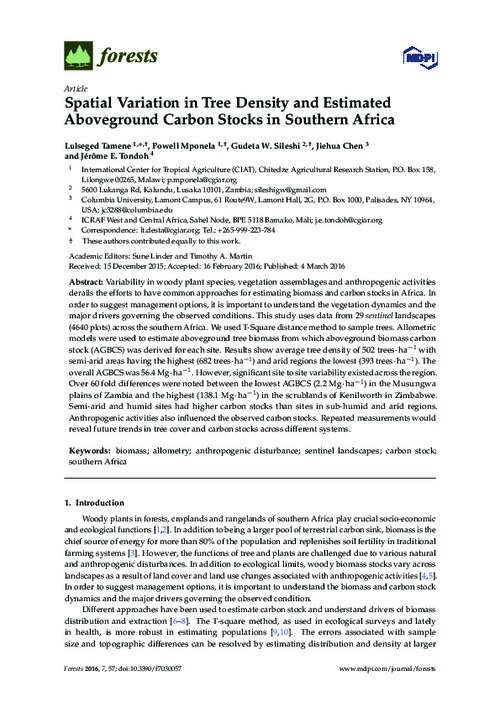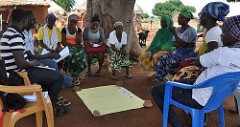The Social Cash Transfer Pilot Programme (SCTPP) in Ethiopia is the Tigray Regional government’s pilot of a social cash transfer currently managed at the national level. The primary objective of the programme is to improve the quality of lives of orphans and other vulnerable children (OVC), the…
This brief describes the broad array of impacts arising from a cash transfer programme that was piloted in the Tigray region of Ethiopia from 2011 to 2014. About 80 percent of Tigray’s population of 4.3 million live in rural areas and depend on rain-fed subsistence agriculture for their…
Variability in woody plant species, vegetation assemblages and anthropogenic activities derails the efforts to have common approaches for estimating biomass and carbon stocks in Africa. In order to suggest management options, it is important to understand the vegetation dynamics and the major…
Variability in woody plant species, vegetation assemblages and anthropogenic activities derails the efforts to have common approaches for estimating biomass and carbon stocks in Africa. In order to suggest management options, it is important to understand the vegetation dynamics and the major…
This paper, presented at the <a href="https://www.worldbank.org/en/events/2015/07/20/land-and-poverty-conference-2016-scal… World Bank…
FAO has focused and integrated its work in the Region through three Regional Initiatives. The Initiatives respond to the priorities of member-states and will achieve demonstrable impact in a time bound manner, whilst responding to FAO’s Strategic Objectives. In Africa, the Regional Initiatives…
La FAO a organisé et intégré ses activités dans la région autour de trois Initiatives régionales. Ces Initiatives répondent aux priorités des États membres et permettra d’avoir des résultats tangibles dans des délais bien précis, tout en répondant aux Objectifs stratégiques de la FAO. En Afrique…
Classification Concepts The FAO Land Cover Classification System software is due to be released in its third version, and with it come four supporting volumes. The first of these is Classification Concepts, which lays the foundation for an understanding of the Land Cover Metalanguage (LCML)…
Zimbabwe's water reforms that were undertaken in the 1990s were meant to redress the colonially inherited inequalities to agricultural water, increase water security against frequent droughts, improve water management, and realise sustainable financing of the water sector. They were…
Since its independence in 1980, Zimbabwe has pursued a land reform and resettlement program aimed at addressing racially skewed land distribution. The most recent phase, the Fast Track Land Reform Program, was launched in 2000 with the aim of acquiring at least five million hectares of land for…
In the natural resources sector, laws are often formulated to regulate the relationship between men and the environment. Ideally, the law can play a vital role in regulating and protecting communities from adverse environmental and social impacts of mining, loss of land, biodiversity and natural…






